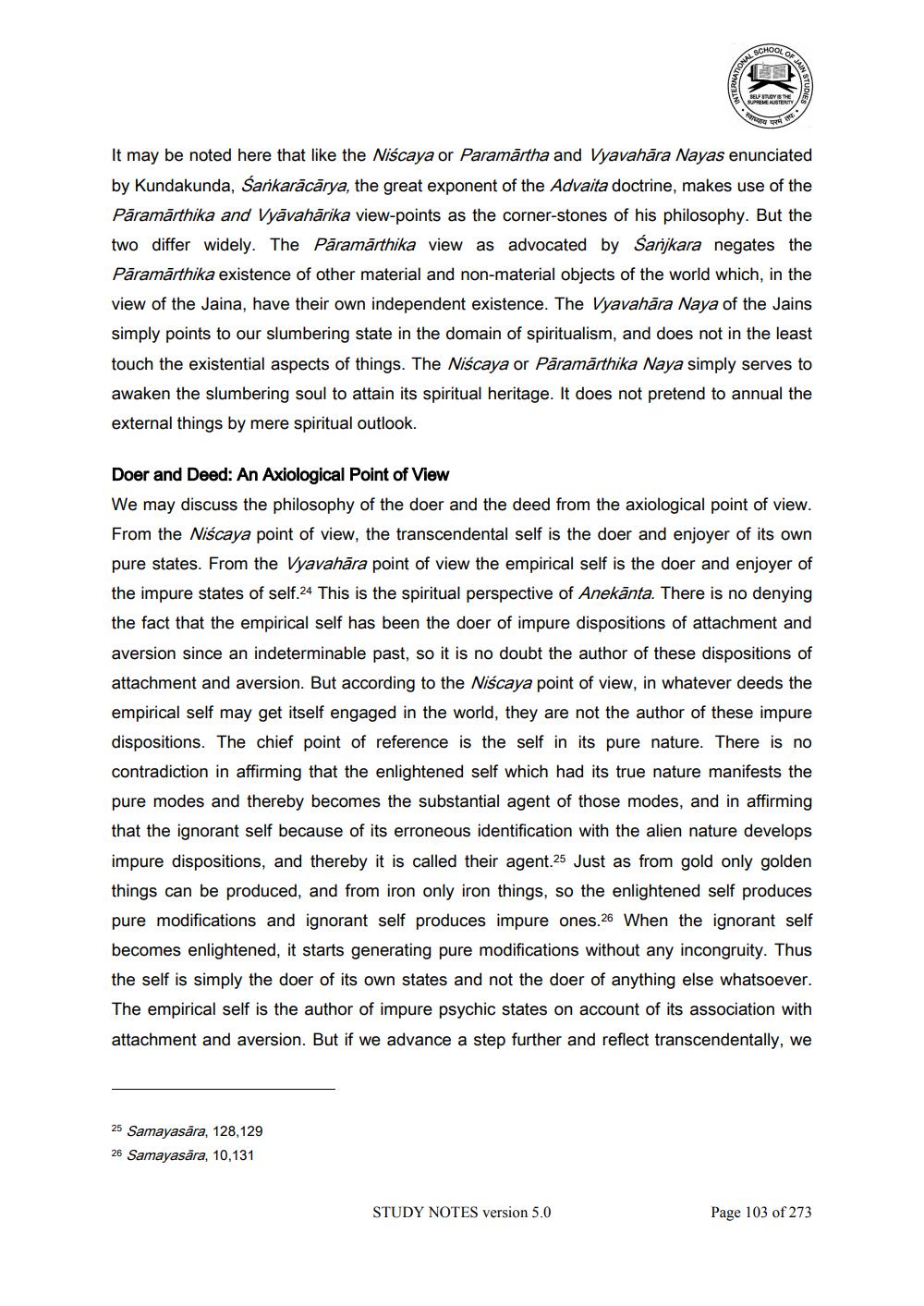________________
It may be noted here that like the Niscaya or Paramārtha and Vyavahāra Nayas enunciated by Kundakunda, Sarkarācārya, the great exponent of the Advaita doctrine, makes use of the Pāramārthika and Vyāvahārika view-points as the corner-stones of his philosophy. But the two differ widely. The Paramarthika view as advocated by Sanjkara negates the Pāramārthika existence of other material and non-material objects of the world which, in the view of the Jaina, have their own independent existence. The Vyavahāra Naya of the Jains simply points to our slumbering state in the domain of spiritualism, and does not in the least touch the existential aspects of things. The Niscaya or Pāramārthika Naya simply serves to awaken the slumbering soul to attain its spiritual heritage. It does not pretend to annual the external things by mere spiritual outlook.
Doer and Deed: An Axiological Point of View We may discuss the philosophy of the doer and the deed from the axiological point of view. From the Niscaya point of view, the transcendental self is the doer and enjoyer of its own pure states. From the Vyavahāra point of view the empirical self is the doer and enjoyer of the impure states of self.24 This is the spiritual perspective of Anekānta. There is no denying the fact that the empirical self has been the doer of impure dispositions of attachment and aversion since an indeterminable past, so it is no doubt the author of these dispositions of attachment and aversion. But according to the Niscaya point of view, in whatever deeds the empirical self may get itself engaged in the world, they are not the author of these impure dispositions. The chief point of reference is the self in its pure nature. There is no contradiction in affirming that the enlightened self which had its true nature manifests the pure modes and thereby becomes the substantial agent of those modes, and in affirming that the ignorant self because of its erroneous identification with the alien nature develops impure dispositions, and thereby it is called their agent 25 Just as from gold only golden things can be produced, and from iron only iron things, so the enlightened self produces pure modifications and ignorant self produces impure ones.26 When the ignorant self becomes enlightened, it starts generating pure modifications without any incongruity. Thus the self is simply the doer of its own states and not the doer of anything else whatsoever. The empirical self is the author of impure psychic states on account of its association with attachment and aversion. But if we advance a step further and reflect transcendentally, we
25 Samayasāra, 128, 129 26 Samayasāra, 10,131
STUDY NOTES version 5.0
Page 103 of 273




